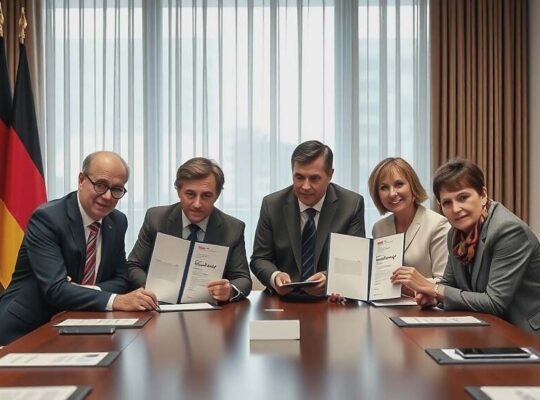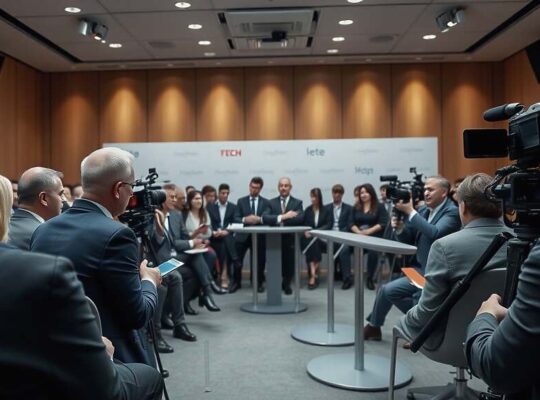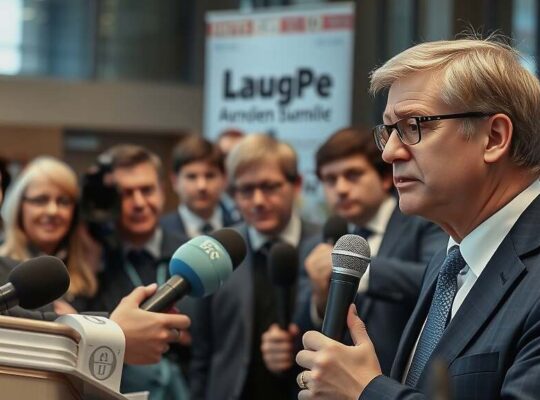Germany’s representation within EU institutions is significantly dwindling, a situation intensifying as experienced German officials retire, according to a recent analysis by the European Commission. The shortfall is particularly acute at entry-level and mid-tier positions, where German nationals comprise only 7.9% of staff, far short of the targeted 13.8% outlined by Brussels.
The imbalance has drawn sharp criticism, especially given Germany’s substantial financial contribution to the EU budget, effectively shouldering approximately 25% of the total. Daniel Caspary, head of the CDU/CSU parliamentary group in the European Parliament, voiced deep concern, stating that insufficient German representation jeopardizes the ability to effectively advocate for German interests and unique considerations within the Union. He warned of a potentially disastrous cascading effect, with current underrepresentation translating into a dearth of German leadership within the EU’s highest ranks.
The European Commission acknowledges the issue and claims to be implementing measures to rectify the disparity, including mandating interviews with candidates from underrepresented member states during the recruitment process for temporary contracts. However, a Commission spokesperson admitted that salaries offered by EU institutions may no longer be sufficiently attractive to German citizens, leading to a shortage of qualified German applicants compared to other nationalities. Entry-level salaries for officials range from €3,000 to €5,000 per month, while contract staff begin at a minimum of €2,500, a factor reportedly discouraging potential German candidates.
The inadequacy of German representation has also drawn ire from taxpayer advocacy groups. Michael Jäger, Vice President of the German Taxpayers’ Association, argued that Germany’s significant financial investment in the EU should be accompanied by commensurate influence within the administrative bodies managing those funds. He urged the German government to prioritize the issue and elevate it to a top-level concern.
The situation raises complex questions regarding the equitable distribution of power and influence within the EU, prompting calls for a reassessment of recruitment strategies and salary structures to ensure a more balanced representation of member states and, crucially, safeguards against diminishing German agency within the Union’s decision-making processes. The onus, according to numerous observers, now falls on Berlin to intervene decisively and demand a fundamental shift in how the EU manages its workforce.












